2024 EU-UK Youth Dialogue – EU Delegation brings together 150 youth leaders
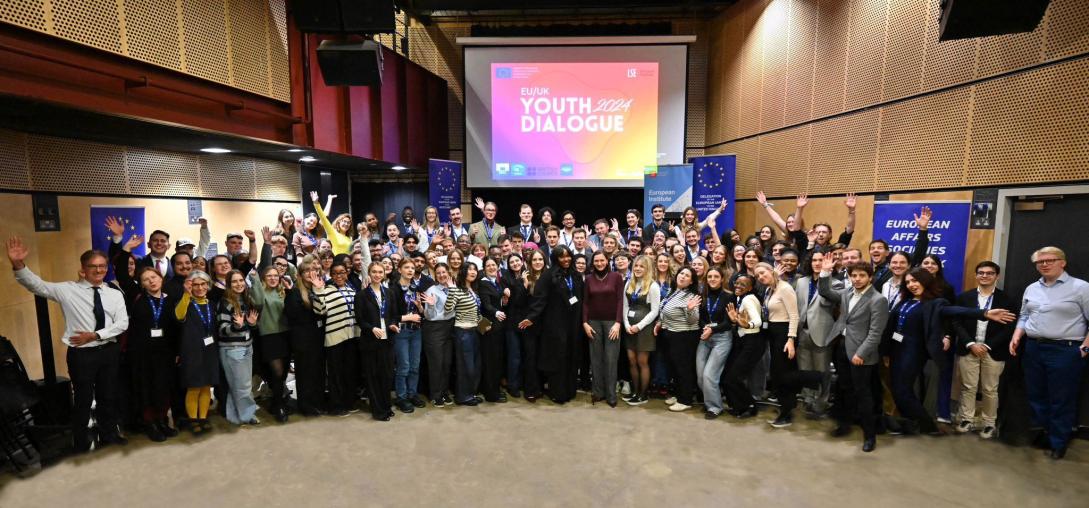
Engage – Empower – Connect
The EU-UK Youth Dialogue 2024 was held under the framework of the EU Youth Action Plan in External Action , which seeks to engage, empower, and connect young people globally. These principles are key to building partnerships that place youth at the forefront of addressing global challenges.
Youth at the heart of EU-UK relations
Young people in the UK remain at the center of the EU-UK relationship. With over 12 million young people (18-30), youth is essential in building stronger connections between the UK and the EU. Programmes such as Erasmus+ and other cross-border opportunities were widely recognized as key tools for fostering cooperation and creating opportunities for young people from all backgrounds.
The Dialogue opens

EUD
Isabell Poppelbaum and LSE President Larry Kramer opened the Dialogue and welcomed all to the two-day gathering to take place across the LSE central London Campus. A major highlight of the first day was the 4th Meeting of the Network of European Affairs Societies, which brought together student societies from across the UK focusing on European affairs.
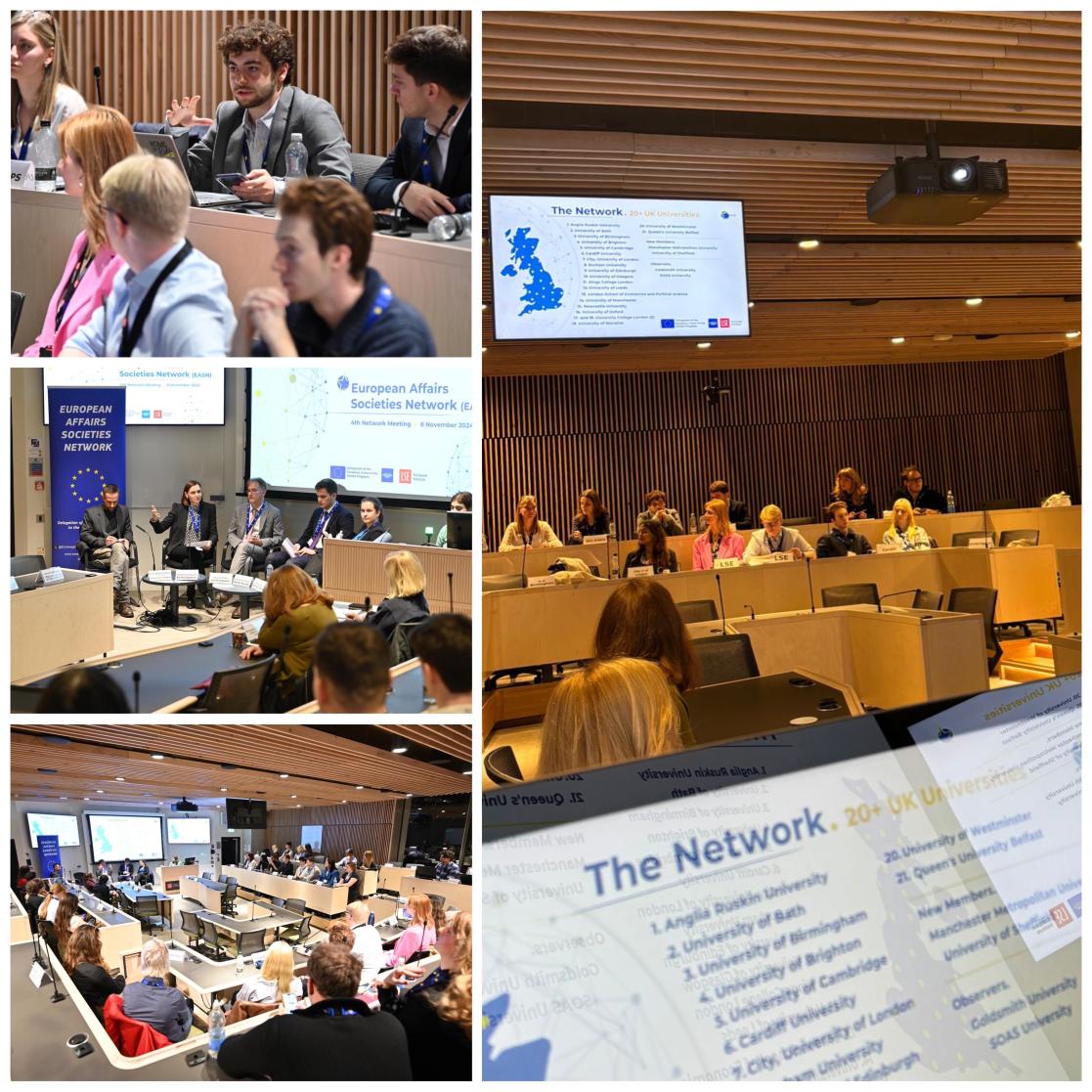
EUD
The meeting provided a platform for student-led societies to collaborate and deepen their connection with EU institutions.
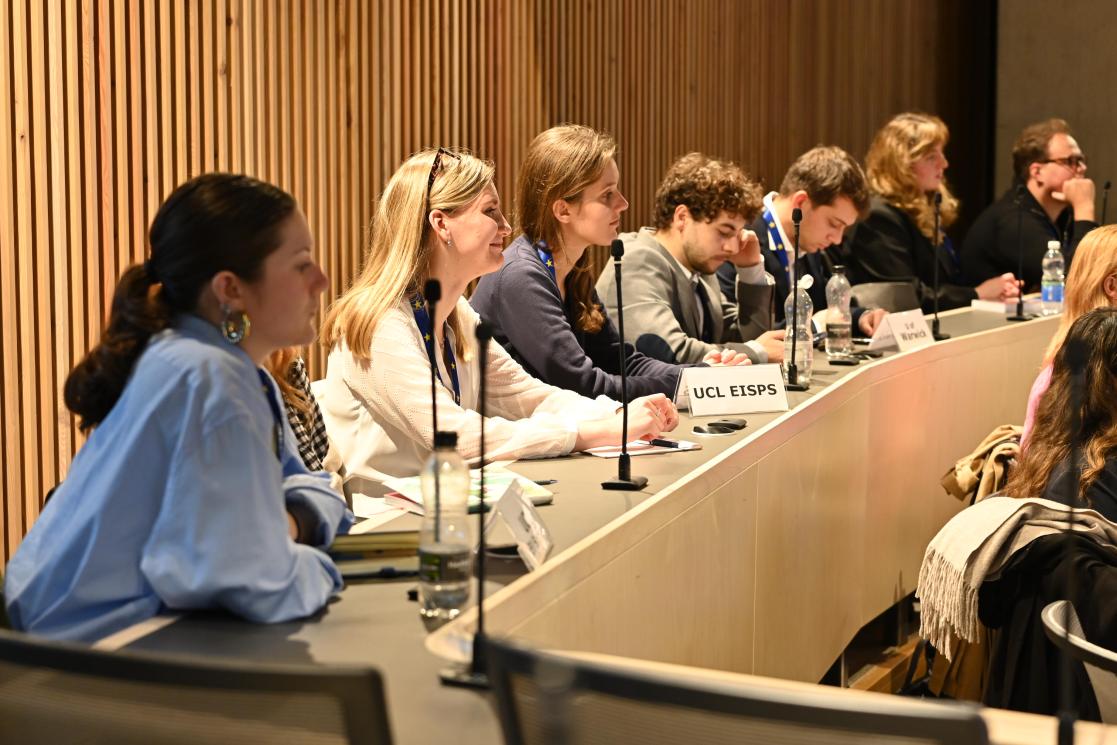
EUD
The Network welcomed two new members, Manchester Metropolitan and The University of Sheffield, bringing the total membership of the Network to 22 UK universities from across the UK.
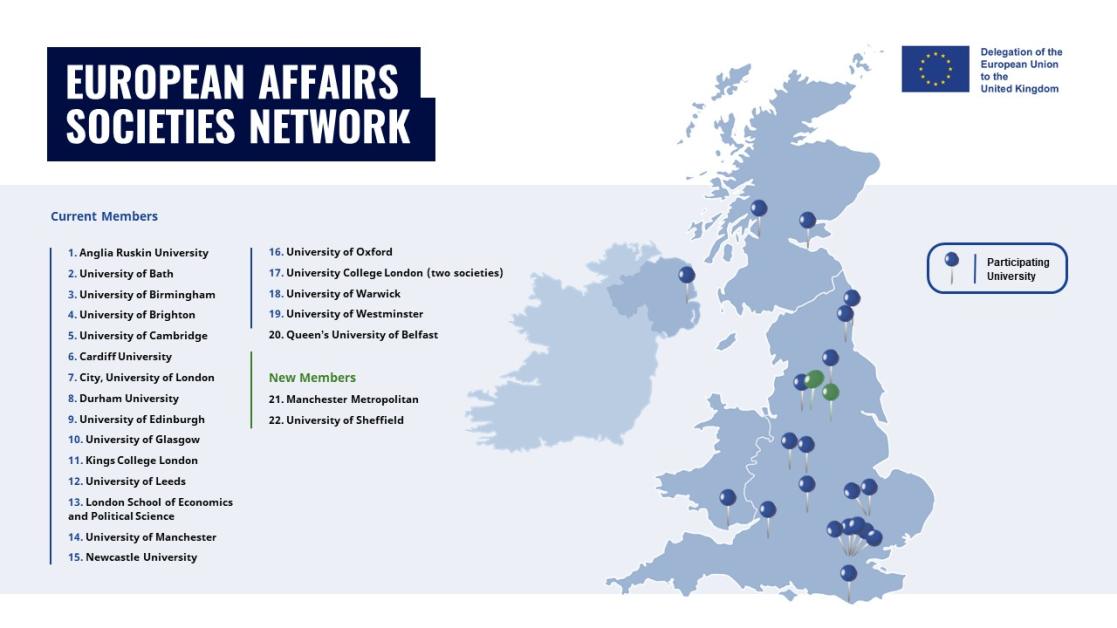
EUD
Among the topics discussed was the idea of establishing a group of 'friends of the Network' which will bring together alumni and academic staff together that support the activities of the societies.

EUD
Concurrently a separate session allowed participants to to engage directly with representatives from the European Economic and Social Committee and the British Youth Council, discussing key issues facing young people today. Baroness Bull, member of the House of Lords, opened the session, in which young workers and union representatives, young entrepreneurs and young people engaged in youth and civil society organizations, heard about the role of the EESC and its support for strong connections between young people in the UK and the EU.
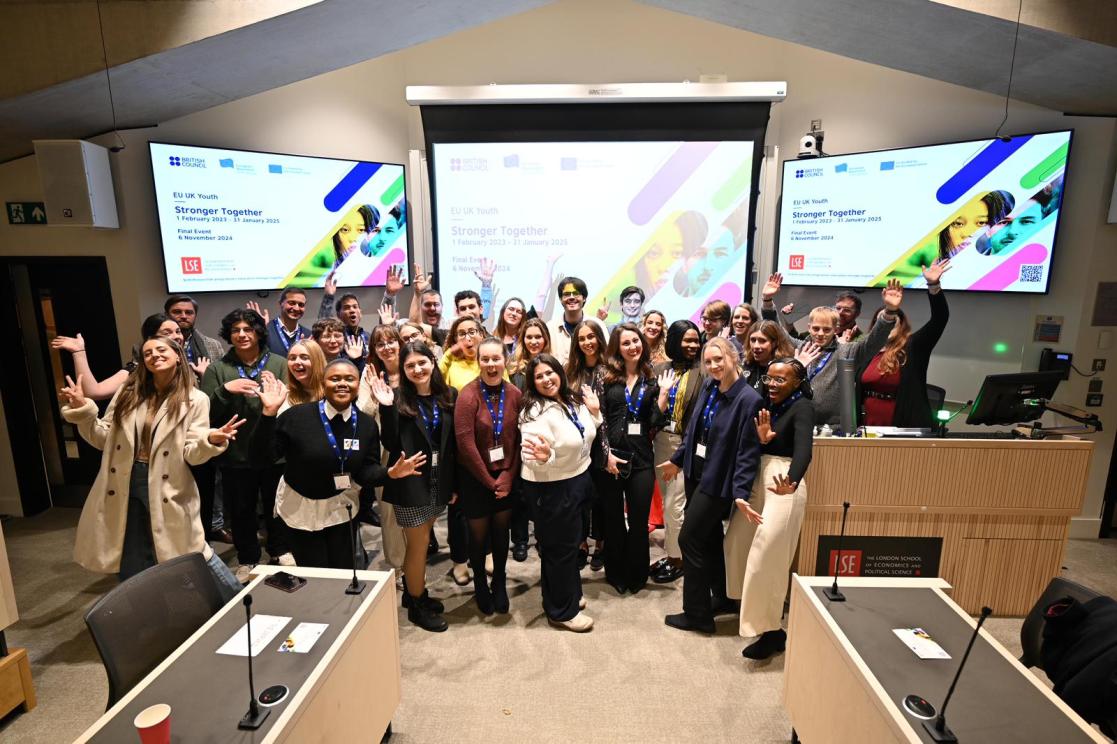
EUD
In a further break-out lecture theatre, the British Council's "Stronger Together" Project, funded by the EU, held a workshop and the closing event of the project. Further background on the project available here.

EUD
Making the most of the wonderful surrounds of the student union of LSE, the first day ended with pizza and live music – a vibrant, well-earned networking opportunity!
Youth and the future of EU-UK Relations
The second day of the Dialogue opened with a panel shared by Pedro Serrano, EU Ambassador to the UK, Beatriz Pires from the LSE European society and Maurizio Cuttin, British Youth Council's UK Young Ambassador to the European Youth Forum.

EUD
The Ambassador shared his thoughts on the geo-political challenges being faced today and underlined the necessity of the engagement of the youth in fostering safe, democratic and prosperous societies across the world. Ambassador Serrano also met with youth leaders to discuss how to build on the Delegation’s youth engagement efforts and on the role youth can play in continuing building strong EU-UK relations

EUD
Participants then took part in an interactive sessions in small groups to discuss the key issues affecting young people in the UK and the EU, and how collaboration between the UK and the EU might address these. The groups identified that many problems affecting young people today are global issues that concern both young people in both the UK and the EU; therefore international collaboration was needed to address them.

EUD
The two most substantial concerns for young people were said to be the challenging economic situation and exclusion from political decision making. The economic situation was said to interlink with all other aspects of young people's lives, increasing the number of young people in poverty, making it harder to access housing, as well as limiting opportunities for young people, especially those who are marginalised. Other concerns highlighted included reduction in learning mobility opportunities such as language and cultural exchange as well as increasing polarisation.
Following these discussions, the spotlight turned to a panel discussion titled “Setting the Youth Agenda: A Deal for Young People and Future Generations”, with an impressive array of speakers.
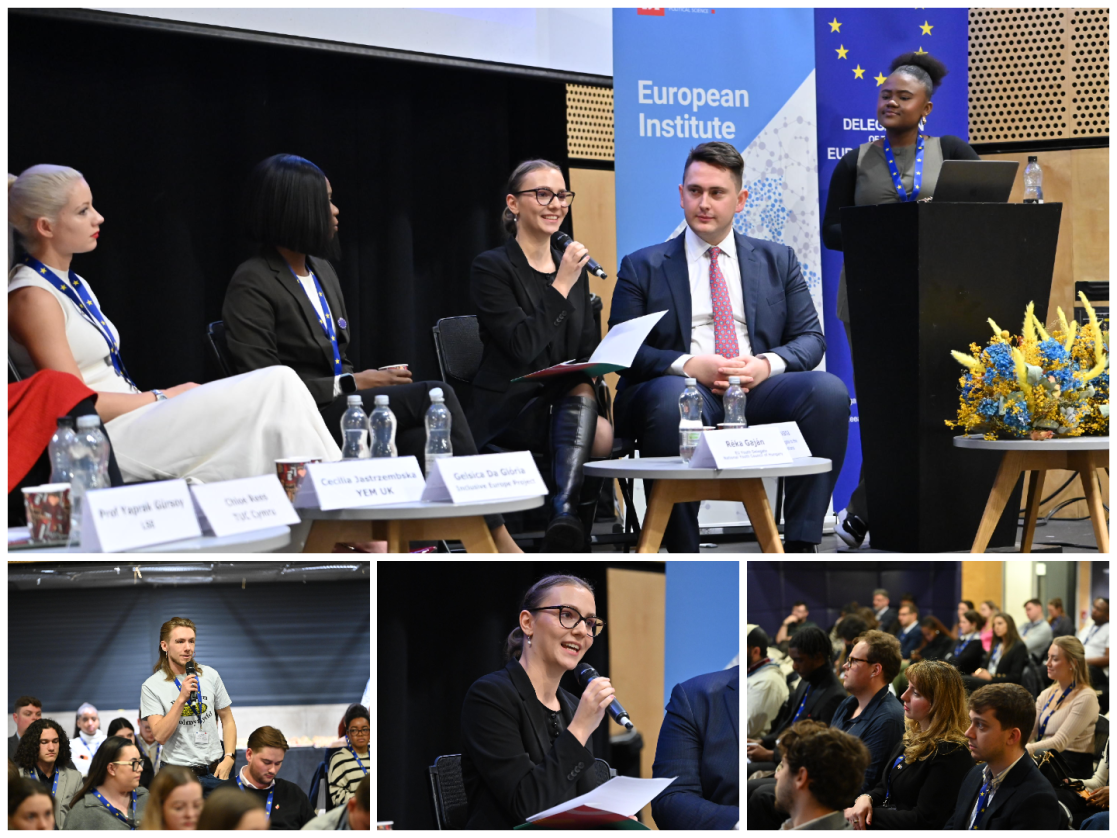
EUD
The panel was made by Cecilia Jastrzembska, President of YEM UK, who focused gender based violence, Gelsica Da Glória, Founder of the Inclusive Europe Project, who talked about human rights and inclusion ; Caillum Hedderman, Board Member of the European Youth Forum (EYF) and Chloe Rees, union representative from the Trade Union congress Wales (TUC Cymru), addressing young workers rights and the key role union play in protecting workers rights in the labour market. Lukas Svana, former EU Youth Delegate to the UN, informed participants about the role that young people can also play in international fora, in particular at the United Nations and explained the work of UN Youth Delegates from the EU and its Member States.
After the packed morning, in the afternoon Dialogue's participants broke into regional groups to discuss the theme of “Acting Locally”.
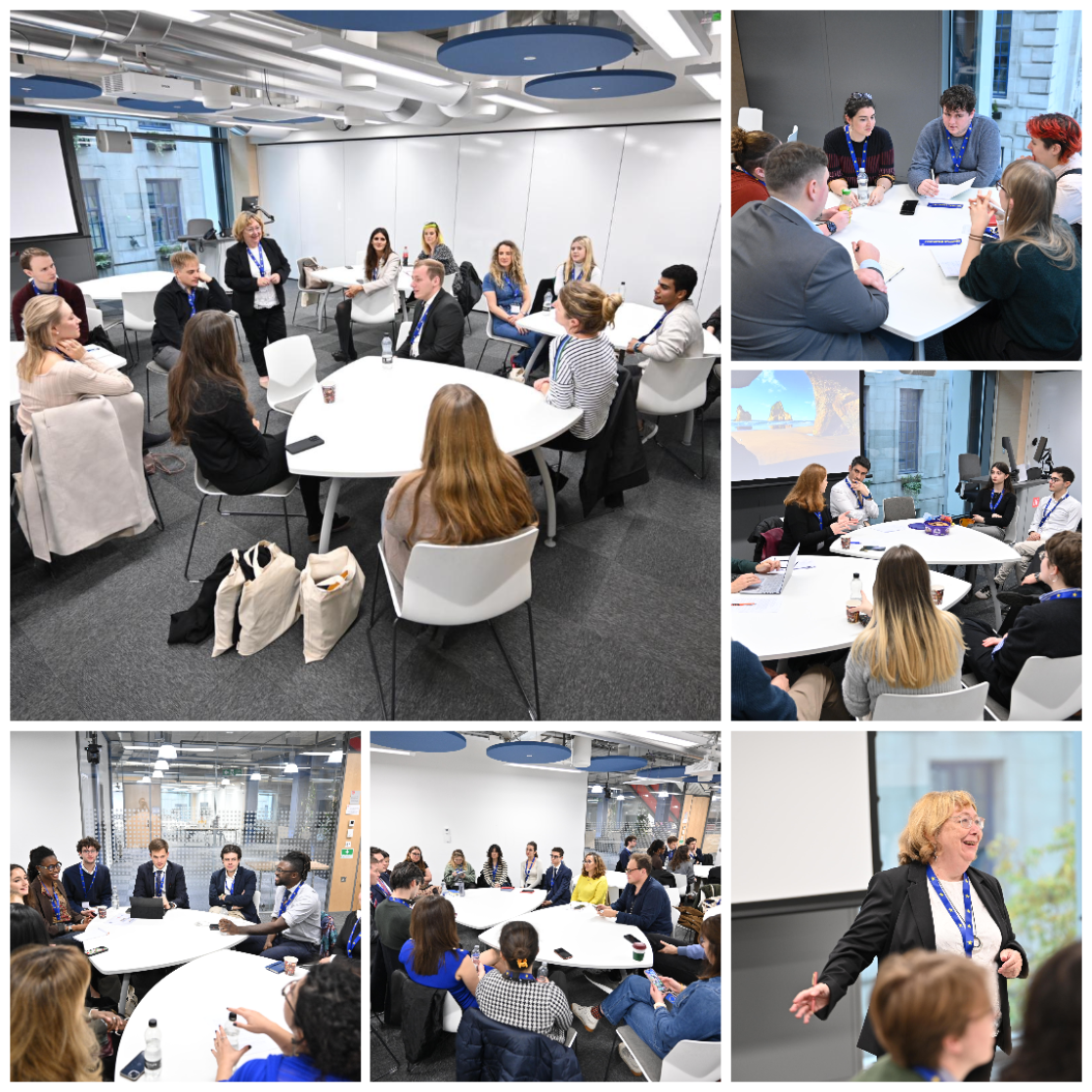
EUD
Youth from across Scotland, Wales, Northern Ireland, the North, London and other parts of England explored how they could continue to collaborate on a local level, further enhancing EU-UK cooperation. These discussions were chaired by EU Delegation representatives and prominent figures from youth and civil society organizations, creating actionable plans for ongoing engagement.

EUD
There also was a very meaningful conversation which explored EU-UK relations in the youth field and centered around the future of youth mobility and the importance of people-to-people contacts in fostering cooperation. The panel, moderated by Dr Miguel Pereira, Assistant Professor in European Politics, LSE European Institute, emphasized the need to sustain youth exchanges and educational opportunities that build bridges across bordersto explore the topic brought together; Irene Oldfather, Vice Chair of the UK Domestic Advisory Group of the TCA and Chair of DAG, Cillian Lohan, President of the European Economic and Social Committee (EESC) EU-UK Follow-Up Committee, who explained the key role of the EESC as the home of civil society in the EU and also presented its report on EU-UK youth engagement; Maurizio Cuttin, UK Young Ambassador of British Youth Council, who vocally called for the UK to become an Erasmus+ associated country, and debunked the “myth” that Erasmus+ is a Higher Education programme , when in reality it also provides a wide range of opportunities to youth organizations, apprentices, young people in Vocational Education and Training, adult learners, and other groups; and Stella Mavropoulou, a representative from the British Council. Stella presented the Stronger Together project’s policy recommendations, including the need to offer mobility opportunities to young people in the UK and the EU. Stella also recalled that the Embrace Erasmus+ campaign has gather more than 50,000 signatures. This panel highlighted the critical role that mobility opportunities and personal connections play in ensuring future cooperation between the EU and UK
During the youth dialogue there also was an interactive poll, and questions surrounding the dialogue and issues of key concern to EU-UK youth were put to the audience. Poll responses found that 80% supported the idea that the UK should again become an Erasmus-associated country. Another significant response from the audience was that most participants also agreed by a large majority with the idea the EU and the UK should work together as a positive force to promote democracy and the rule of law.
Building for the future
A final panel discussion featured the UK Young Ambassador to the European Youth Forum, Zara Okusi, Will Wale, representative from the LSE European student society, Tom Matthews of the Youth Forum and Isabell Poppelbaum, EU Deputy Ambassador. In her closing remarks, Zara Okusi regretted all the opportunities that young people in the UK lost after Brexit and made a call for the UK to become an Erasmus+ associated country. Will Wale echoed this sentiment and thanked the EU Delegation for making the youth dialogue possible.
The 2024 EU-UK Youth Dialogue left a lasting impression, providing an unparalleled platform for young leaders to engage directly with policymakers and shape the future of EU-UK relations. The 2024 dialogue was a testament to the power of youth engagement, as participants from all walks of life worked together to envision a more connected and cooperative future between the EU and UK.
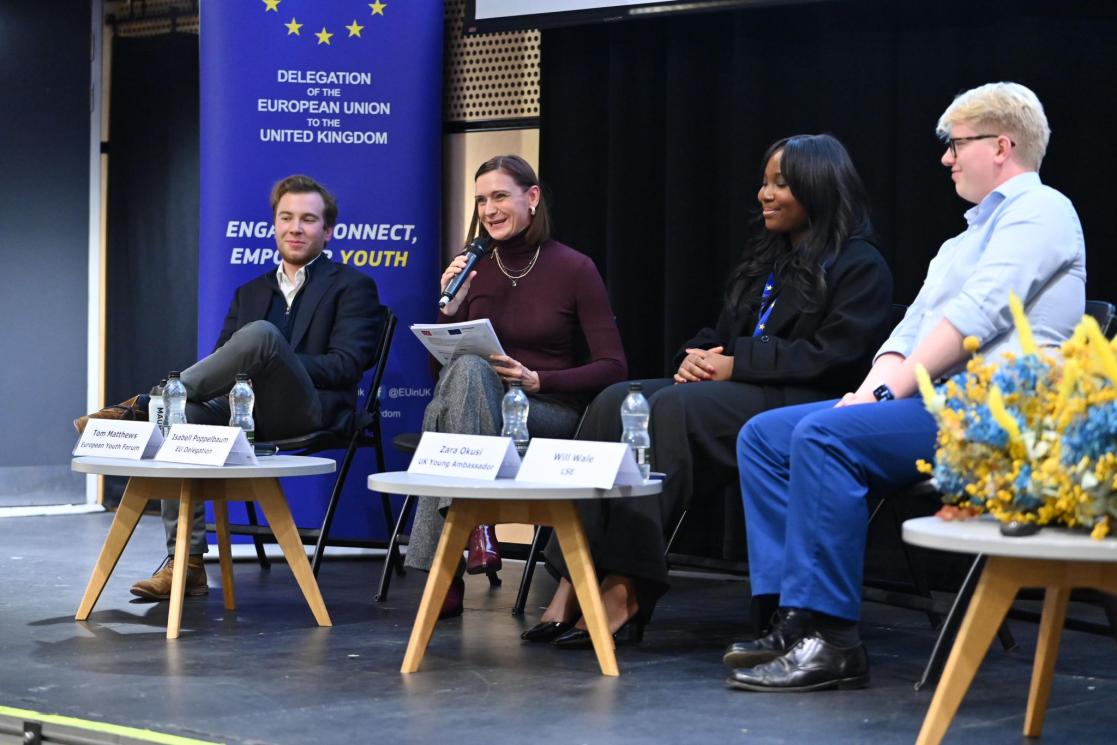
EUD
Isabell Poppelbaum, extended the thanks of the Delegation to the LSE European Institute for hosting this year’s EU-UK Youth Dialogue and concluded said “Young people need to have a voice in building the future EU-UK relationship. And we are here to help provide a platform so you can articulate what you want that relationship to look like. The future is yours for the taking, so dream big!”. Apt words as we look forward to building on the connections and work realised over the course of these two inspiring days.
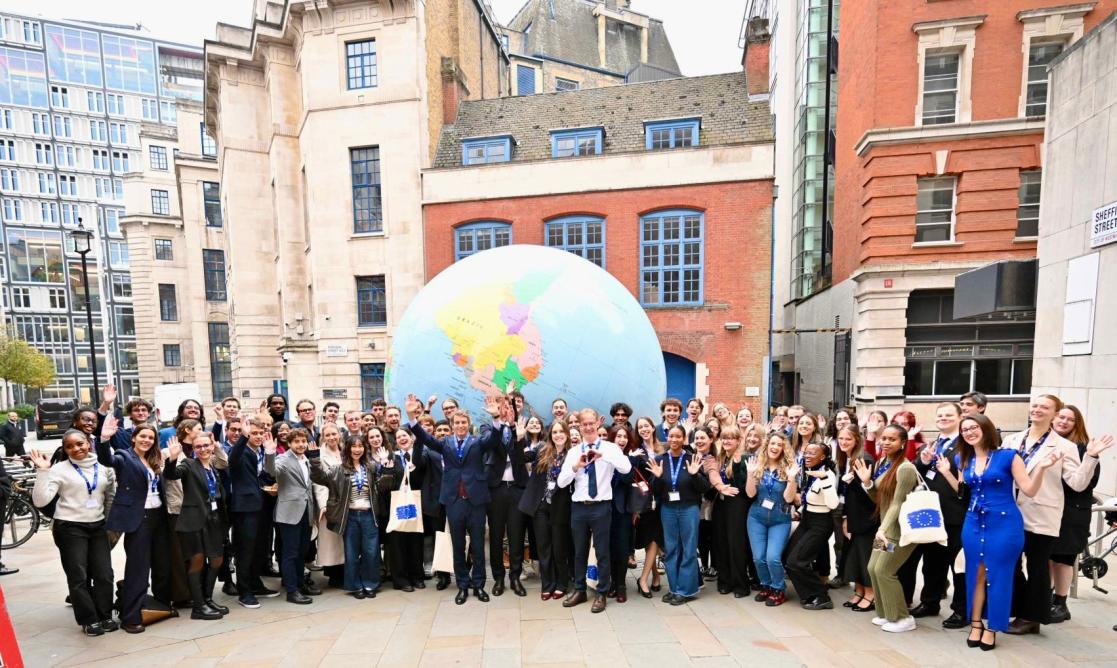
EUD





